Year after year, we are treated to more incredible Japanese books in translation. After the fantastic turn-out of Japanese books in 2021 — especially Kyoko Nakajima’s Things Remembered and Things Forgotten and Mieko Kawakami’s Heaven — 2022 has a lot to live up to.
Luckily, all signs point to 2022 being an even better year for new Japanese books in translation than 2021 was!
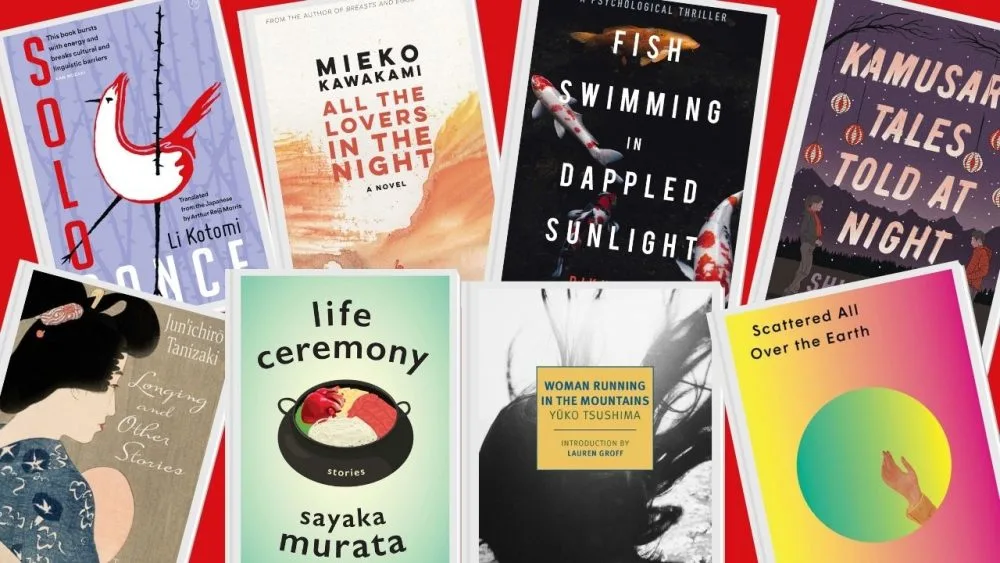
New Japanese Books in Translation
Here, we have catalogued all the most exciting new Japanese books in translation coming in 2022. You’ll find such exciting titles as All The Lovers in the Night, the new novel by Mieko Kawakami, and a brand new short story collection from Sayaka Murata: Life Ceremony.
Enjoy, and may 2022 be an exciting year for new Japanese books in translation.
All The Lovers in the Night by Meiko Kawakami
Translated by Sam Bett & David Boyd

After the enormous successes found by Breasts and Egss and Heaven, Mieko Kawakami returns in 2022 with All The Lovers in the Night.
“Fuyuko Irie is a freelance copy editor in her mid-thirties. Working and living alone in a city where it is not easy to form new relationships, she has little regular contact with anyone other than her editor, Hijiri, a woman of the same age but with a very different disposition.
When Fuyuko stops one day on a Tokyo street and notices her reflection in a storefront window, what she sees is a drab, awkward, and spiritless woman who has lacked the strength to change her life and decides to do something about it.
As the long overdue change occurs, however, painful episodes from Fuyuko’s past surface and her behavior slips further and further beyond the pale.
All the Lovers in the Night is acute and insightful, entertaining and engaging; it will make readers laugh, and it will make them cry, but it will also remind them, as only the best books do, that sometimes the pain is worth it.” – Europa Editions
Life Ceremony by Sayaka Murata
Translated by Ginny Tapley Takemori

Modern Japan’s most punk and exciting author returns, this time with a short story collection titled Life Ceremony.
“In these twelve stories, Murata mixes an unusual cocktail of humor and horror to portray both the loners and outcasts as well as turning the norms and traditions of society on their head to better question them.
Whether the stories take place in modern-day Japan, the future, or an alternate reality is left to the reader’s interpretation, as the characters often seem strange in their normality in a frighteningly abnormal world.
In “A First-Rate Material,” Nana and Naoki are happily engaged, but Naoki can’t stand the conventional use of deceased people’s bodies for clothing, accessories, and furniture, and a disagreement around this threatens to derail their perfect wedding day.
“Lovers on the Breeze” is told from the perspective of a curtain in a child’s bedroom that jealously watches the young girl Naoko as she has her first kiss with a boy from her class and does its best to stop her.
“Eating the City” explores the strange norms around food and foraging, while “Hatchling” closes the collection with an extraordinary depiction of the fractured personality of someone who tries too hard to fit in.” – Grove Atlantic
Longing and Other Stories by Junichiro Tanizaki
Translated by Anthony Chambers and Paul McCarthy
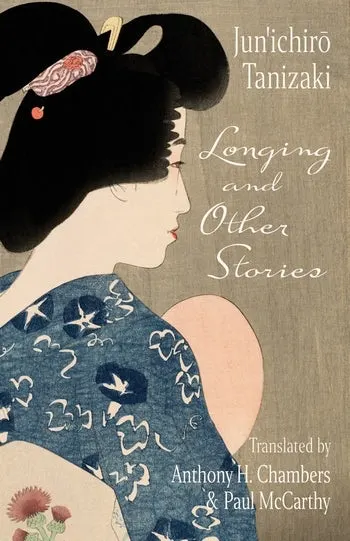
Junichiro Tanizaki was one of 20th Century Japan’s most beloved and renowned authors. And now we have three of his stories newly translated into English in 2022, all of which are tied together by the theme of family, specifically a mother’s relationship to her sons.
“Longing recounts the fantastic journey of a precocious young boy through an eerie nighttime landscape. Replete with striking natural images and uncanny human encounters, it ends with a striking revelation.
Sorrows of a Heretic follows a university student and aspiring novelist who lives in degrading poverty in a Tokyo tenement. Ambitious and tormented, the young man rebels against his family against a backdrop of sickness and death.
The Story of an Unhappy Mother describes a vivacious but self-centered woman’s drastic transformation after a freak accident involving her son and daughter-in-law. Written in different genres, the three stories are united by a focus on mothers and sons and a concern for Japan’s traditional culture in the face of Westernization.
The longtime Tanizaki translators Anthony H. Chambers and Paul McCarthy masterfully bring these important works to an Anglophone audience.” – Columbia University Press
Woman Running in the Mountains by Yuko Tsushima
Translated by Geraldine Harcourt
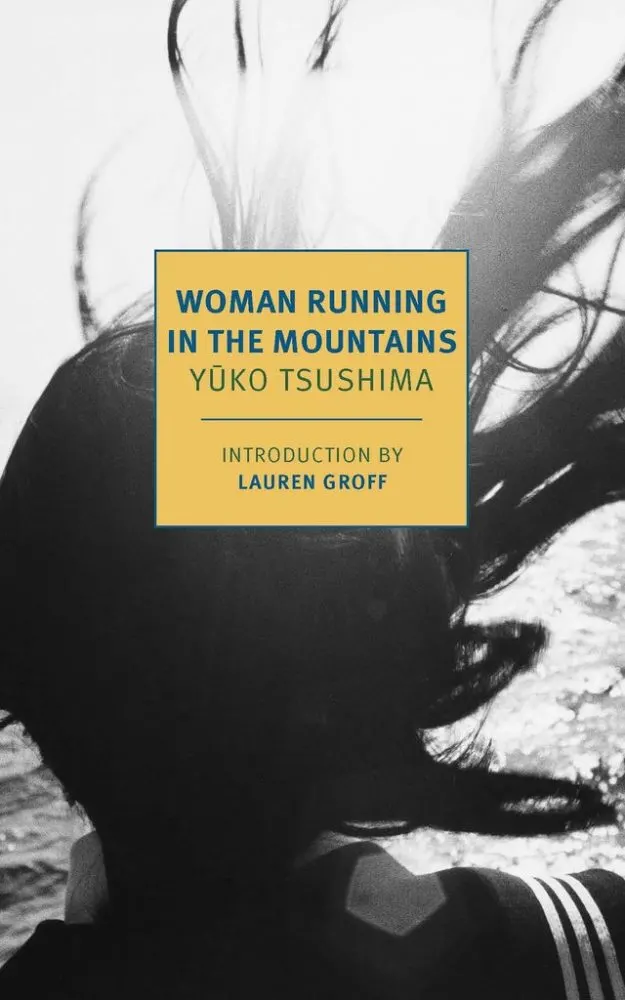
Author of the celebrated Territory of Light, Yuko Tsushima is a legend of Japanese literature. In 2022 we are getting her novel Woman Running in the Mountains, newly translated by Geraldine Harcourt.
“Alone at dawn, in the heat of midsummer, a young woman named Takiko Odaka departs on foot for the hospital to give birth to a baby boy. Her pregnancy, the result of a brief affair with a married man, is a source of sorrow and shame to her abusive parents.
For Takiko, however, it is a cause for reverie. Her baby, she imagines, will be hers and hers alone, a challenge that she also hopes will free her. Takiko’s first year as a mother is filled with the intense bodily pleasures and pains that come from caring for a newborn.
At first she seeks refuge in the company of other women—in the hospital, in her son’s nursery—but as the baby grows, her life becomes less circumscribed as she explores Tokyo, then ventures beyond the city into the countryside, toward a mountain that captures her imagination and desire for a wilder freedom.” – NYRB Classics
Scattered All Over the Earth by Yoko Tawada
Translated by Margaret Mitsutani
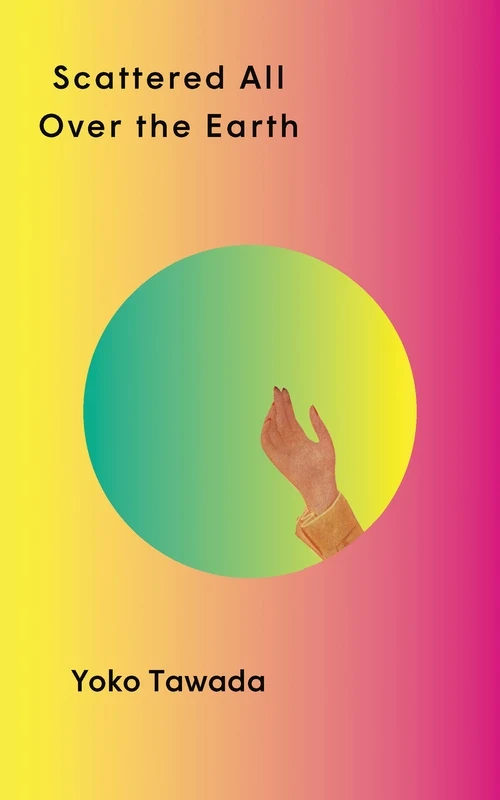
Berlin-based Japanese author Yoko Tawada brought us the excellent Last Children of Tokyo and Memoirs of a Polar Bear. In 2022, she returns with Scattered All Over the Earth.
“Welcome to the not-too-distant future: Japan, having vanished from the face of the earth, is now remembered as “the land of sushi.”
Hiruko, its former citizen and a climate refugee herself, has a job teaching immigrant children in Denmark with her invented language Panska (Pan-Scandinavian): “homemade language. no country to stay in. three countries I experienced. insufficient space in brain. so made new language. homemade language.”
As she searches for anyone who can still speak her mother tongue, Hiruko soon makes new friends. Her troupe travels to France, encountering an umami cooking competition; a dead whale; an ultra-nationalist named Breivik; unrequited love; Kakuzo robots; red herrings; uranium; an Andalusian matador.
Episodic and mesmerizing scenes flash vividly along, and soon they’re all next off to Stockholm.” – New Directions
Kamusari Tales Told at Night by Shion Miura
Translated by Juliet Winters Carpenter
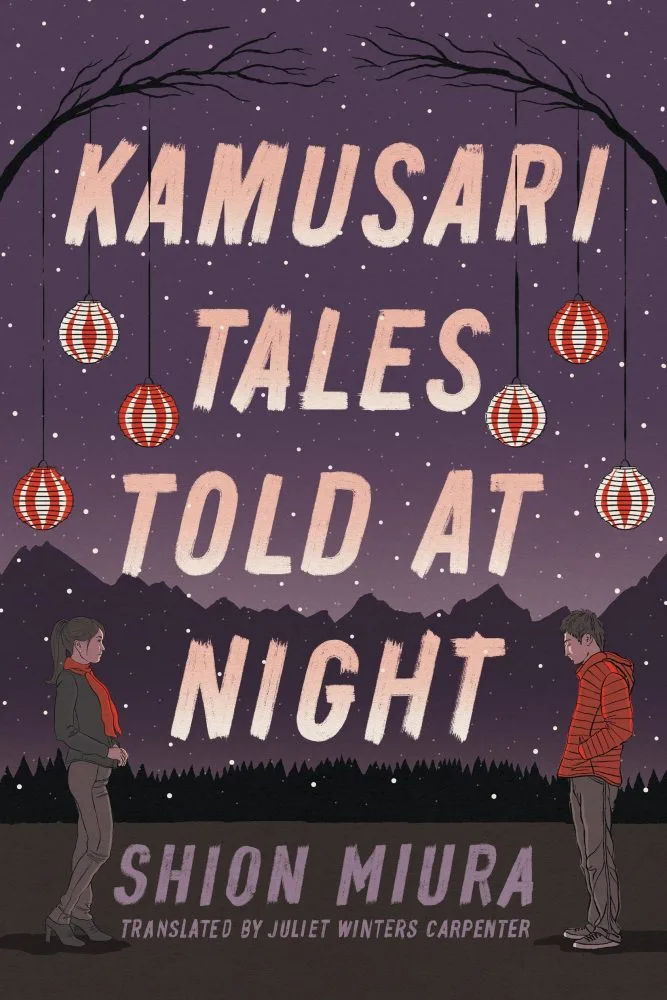
Here is the direct sequel to Shion Miura’s The Easy Life in Kamusari, published in 2021. That was a novel we very much enjoyed, and are looking forward to a sequel to!
“It’s been a year since Yuki Hirano left home―or more precisely, was booted from it―to study forestry in the remote mountain village of Kamusari. Being a woodsman is not the future he imagined, but his name means “courage,” and Yuki hopes to live up to it.
He’s adapting to his job and learning constantly. In between, he records local legends―tales pulsing with life, passion, and wondrous gods. Kamusari has other charms as well. One of them is Nao.
Yuki’s crush on the only other young single person in the village isn’t a secret. Yet how impressed can she be with someone at least five years younger who makes less money and doesn’t even own a car? More daunting, she’s in love with another man.
Finally finding his place among the villagers, a feeling deepened by his crush, Yuki seems headed for a dream life of adventure and camaraderie―and Nao could be the missing piece of that dream.” – Amazon Crossing
Fish Swimming in Dappled Sunlight by Riku Onda
Translated by Alison Watts
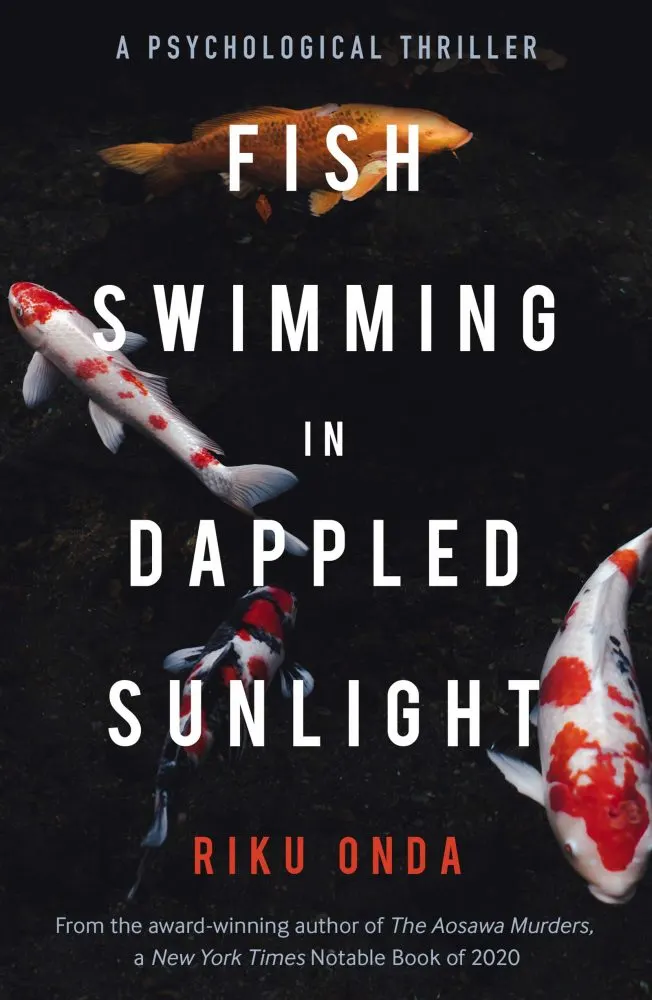
The Aosawa Murders is one of the most renowned and well-regarded Japanese murder mystery novels of recent years, and now we have the author’s newest book in English translation coming in 2022!
“Set in Tokyo over the course of one night, Aki and Hiro have decided to be together one last time in their shared flat before parting. Their relationship has broken down after a mountain trek during which their guide died inexplicably.
Now each believes the other to be a murderer and is determined to extract a confession before the night is over. Who is the murderer and what really happened on the mountain?
In the battle of wills between them, the chain of events leading up to this night is gradually revealed in a gripping psychological thriller that keeps the reader in suspense to the very end.” – Bitter Lemon Press
Solo Dance by Li Kotomi
Translated by Arthur Reiji Morris
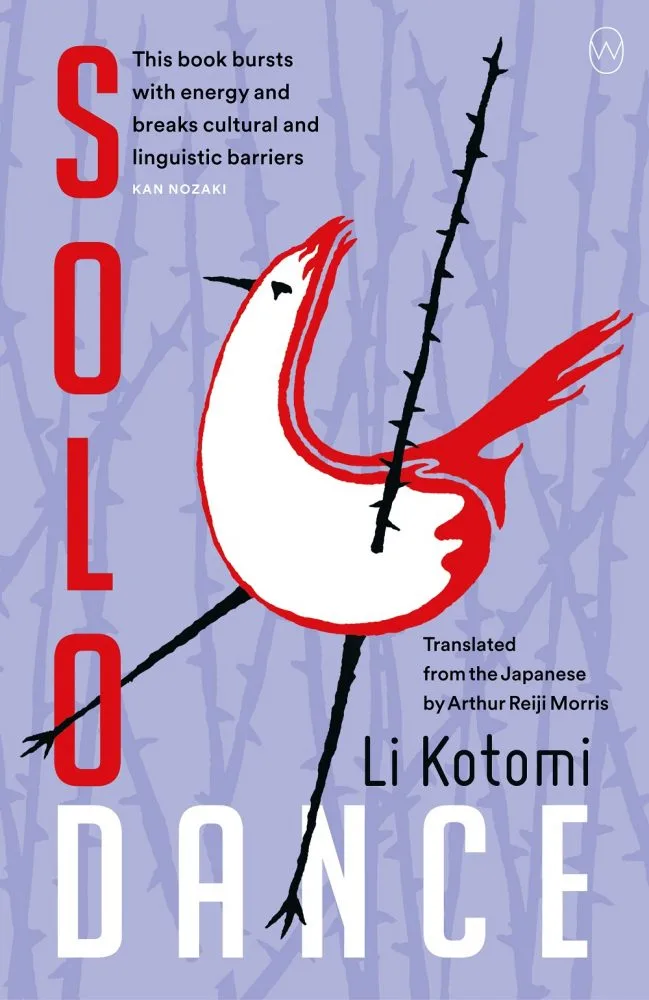
We can’t hide our excitement for this one. Solo Dance marks the debut literary translation of one of our personal dear friends, Arthur Morris. Thinking about this brings. a tear to our eye.
“Chō Norie, twenty-seven and originally from Taiwan, is working an office job in Tokyo. While her colleagues worry about the economy, life-insurance policies, marriage, and children, she is forced to keep her unconventional life hidden—including her sexuality and the violent attack that prompted her move to Japan.
There is also her unusual fascination with death: she knows from personal experience how devastating death can be, but for her it is also creative fuel.
Solo Dance depicts the painful coming of age of a gay person in Taiwan and corporate Japan. This striking debut is an intimate and powerful account of a search for hope after trauma.” – World Editions
Diary of a Void by Emi Yagi
Translated by Lucy North and David Boyd
“When thirty-four-year-old Ms Shibata gets a new job in Tokyo to escape sexual harassment at her old one, she finds that, as the only woman at her new workplace – a company that manufactures cardboard tubes – she is expected to do all the menial tasks.
One day she announces that she can’t clear away her colleagues’ dirty cups – because she’s pregnant and the smell nauseates her. The only thing is . . . Ms Shibata is not pregnant.
Pregnant Ms Shibata doesn’t have to serve coffee to anyone. Pregnant Ms Shibata isn’t forced to work overtime. Pregnant Ms Shibata rests, watches TV, takes long baths, and even joins an aerobics class for expectant mothers.
But pregnant Ms Shibata also has a nine-month ruse to keep up. Helped along by towel-stuffed shirts and a diary app on which she can log every stage of her ‘pregnancy’, she feels prepared to play the game for the long haul.
Before long, though, the hoax becomes all-absorbing, and the boundary between her lie and her life begins to dissolve.” – Penguin
